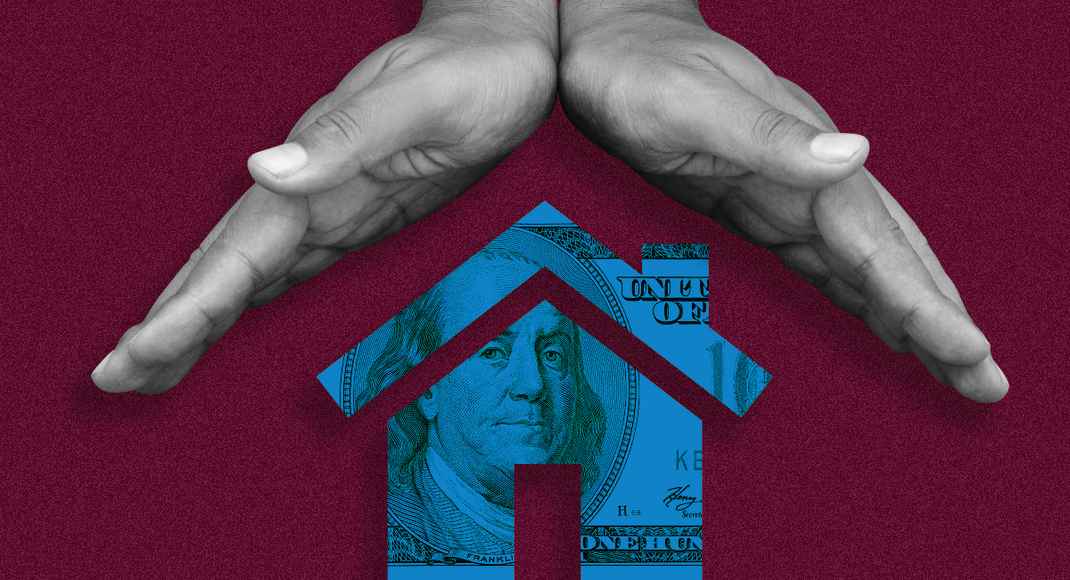The implosion of the "bank of start-ups" threatens the collapse of stock exchanges and central banks. A cataclysm reminiscent of 2008, and pushes everyone to look for culprits: from its creator, Peter Thiel, to its executive director, Gregory Becker.

The fall of the Silicon Valley Bank has seen the emergence of a name: that of Peter Thiel, the ideal villain of the Internet era. Co-founder of PayPal, creator of a despicable spy, big data and counter-terrorism agency called Palantir, useful to both governments and investors, former partner of Elon Musk with whom he never got along, he is, above all, a visionary investor. It is with his money that Airbnb, Facebook, Spotify, and a bunch of other logos that you can see as soon as the screen of a mobile device lights up. All this via various investment tools, in particular Founders Fund, a company that injects thousands of millions of euros into more than 80 consolidated technologies (including Elon Musk's SpaceX and Neuralink, or Thiel's own famous Palantir).
Founders Fund is one of the few that managed to get all its money out of Silicon Valley Bank before the U.S. regulator halted its operations and took control of the 16th largest bank in the United States. This move, imitated by other investors, accelerated SVB's fall. Since then, Peter Thiel has been blamed for one of the biggest banking crises since 2008. But in this case, he is not the villain of the story.
A few days ago, when SVB's problems were not yet public, his fund, as well as the start-ups and investment firms that had entrusted it with more than €175,000 million, faced a revenue problem. A rather serious problem: after going around to his investors asking for capital, the money didn't show up on the fund as expected. Other companies have had one-off problems with salary payments or blank transfers, simple glitches. But what happened with Founders Found was that everything happened at once: huge sums of money, from separate sources, stopped flowing into SVB's accounts.
It was this non-event that prompted Peter Thiel to make one of his legendary hasty decisions: rush everything out the door, just in case. In an entrepreneurial ecosystem like Silicon Valley, this action by Founders Fund set off a cascade that destroyed the bank: everyone tried to get their money out at the same time, something no bank, whether it specializes in startups, or is a traditional institution, can survive. But it doesn't matter who started the stampede. The result is the same: Silicon Valley Bank, after 40 years of history, has finally succumbed.
In the early 1980s, a Stanford entrepreneurship professor, two financiers and a banker realized that the world was changing. Companies born in the mist of technological development were calling for a different kind of financing to get a new economy going. The model we know today as the start-up is in the making. For several years, the idea has been brewing in the mind of Professor Bob Medearis. It took shape during a poker game in a small office in Menlo Park, in what would become, years later, the headquarters of Facebook. "The original idea," Medearis told a conference at the Museum of Computer History (Google's headquarters), "... came from my students, who literally wanted to find a way to get money to support new ideas." So in 1983, in the midst of a regulatory change spurred on by President Ronald Reagan, Silicon Valley Bank was born. It was one of 72 banks to open that year in California. One of more than 400 banks born in 1983 in the United States, with Reagan's blessing.
Bob Medearis and his partners are far more visionary than they realize. Medearis doesn't even work with technologists: the prospect of being able to fund disruptive companies quickly also speaks to guys who aspire to build their construction companies, among other more traditional businesses. Silicon Valley is not yet the Silicon Valley we know. Steve Jobs hasn't launched the Macintosh yet, and Bill Gates has just signed a deal with IBM. The explosion of early technology puts the bank in a strong position: its willingness to fund guys with ideas, coupled with the reluctance of traditional banks, who are not very keen on giving money to weirdos who do stuff with computers, make it a partner of choice. In addition, they treat these guys well. They invite them to ski, they shower them with wine (they even open a wine cellar business for companies; the California wine boom of the last decades? you can blame them too), they help them look for buyers when the ideas take off but the income is still insufficient (and they get good money). For a while, SVB was one of the engines of Silicon Valley. They have flair, investor sensibility, and a desire to do things differently in a place where everything is different. Even when tempted to become a traditional bank, they quickly realized they didn't belong: their entry into the mortgage market in the 1990s almost spared us this article.
In 2011, as with every crisis, SVB appointed a new executive director, Greg Becker. Now, having weathered the 2008 crisis, the dotcom wizardry of the 2000s and the mortgage disaster of the 1990s, SVB has reached its final form: it is a private investor and corporate financial bank, a far cry from the everyday bank. The problem is that they don't have the means to make money like a traditional bank either. Without mortgages, with separate loans for companies without traditional revenues (to summarize roughly: in the first years, a start-up pays salaries with its investors' money, not with its profits. It will sustain itself if it manages to sell enough, unless it is bought by a bigger fish with an established business), Becker's dilemma, which is the same as his predecessors, is how to grow all the money that passes through his hands. Greg Becker believes he has found the perfect solution: invest half of the bank's deposits, some 90,000 million euros, in long-term bond operations.
We won't go into why this was a bad idea, let's just say it was a bad idea. Greg Becker is not interested in short-term bonds because he considers them to be unprofitable; but the advantage of these bonds is that they can easily be put back on the financial markets if you need liquidity. In 2022, several events will change the situation. Mark Zuckerberg announces the layoff of 10,000 Meta employees. In general, new technologies have been strongly affected by the pandemic. Add to this the escalating inflation, the increase in interest rates by central banks to contain it, investors cutting off start-ups, or at least keeping a closer eye on how they use their money, and you get an atrocious year for institutions like SVB and their clients. Under these conditions, few companies dare to go public, for example, something that usually allows a bank to raise cash - in 2021 alone, SVB helped 55% of U.S. IPO startups go public. This was the data the bank used to promote itself as "the bank of global innovation." With Becker at the helm, SVB has tripled its value in 10 years. Until 2021, everything was going well.
In just 18 months, Becker's cards turn to papier-mâché, torn to pieces by the jaws of 2022. By the time the year begins, the bank is desperately short of cash, and Moody's, which determines whether a bond is worth more than the piece of paper it's printed on, tells Becker in late February that his bank has only a few days left. In desperation, Becker tried to find a buyer for SVB (no one wanted it), sell off the long-term debt (via transactions that generated immediate liquidity but resulted in losses of 1,500 million euros at the slightest movement), and also turned to large banks such as Goldman Sachs (without success). The day Peter Thiel decides that his money is no longer safe where it is, hundreds of companies that do not generate their own income rush to the bank to withdraw their deposits and pay, at least, the salaries due the following week. That's what got SVB off the hook.
Today, the whole of Europe is trembling under the fear of investors, who fear that their banks are in fact SVB, with a smiling CEO sending out messages announcing a bright future in a San Francisco palace, while at the other end of the chain, Moody's is predicting its imminent demise. This is the same CEO who, until recently and a few minutes before the regulator took over the bank, approved a bonus for himself and all his employees. And who, a few days before the collapse, sold shares in the bank for more than two million euros.
 What is P R bond?
27/11/2023
What is P R bond?
27/11/2023
 What is Compulsory Convertible Debentures?
27/11/2023
What is Compulsory Convertible Debentures?
27/11/2023
 Dynamics of Central Asian Economies
17/11/2023
Dynamics of Central Asian Economies
17/11/2023